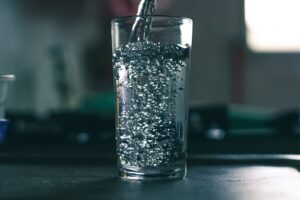 Many people in Germany drink tap water every day, but did you know that it is heavily contaminated with pollutants, especially in big cities? Why not filter your water yourself – that way you are on the safe side.
Many people in Germany drink tap water every day, but did you know that it is heavily contaminated with pollutants, especially in big cities? Why not filter your water yourself – that way you are on the safe side.
Inhaltsverzeichnis
4 reasons for filtering water
Water contains pollutants
The water that comes out of our taps is usually relatively clean. Nevertheless, it can contain pollutants like chlorine or fluoride that are not good for your health. Filtering water can remove these pollutants.
Water tastes better
Water that has been purified by a filter usually tastes fresher and better. This is because filtration can also remove odours and taste impurities.
Filters are easy to use
Nowadays, there are many different types of water filters that are easy to use. For example, there are filter cartridges that you can put in the sink or tap, or portable filter systems that you can take with you and use anywhere.
Filters are relatively inexpensive
Water filter systems are usually relatively inexpensive and can usually be reused. For example, with a portable filter system, you only need to change the filter cartridges every few months.
What are the methods for self-filtering water?
There are different methods to filter water yourself. Some of these methods are easier than others. Here are some of the most common methods:
Strainer
This is probably the easiest method for filtering water yourself. All you need to do is pour the water through a sieve to remove impurities. However, this is not the most effective method as only the coarsest particles are removed.
Sludge
Another simple method is to heat the water and add slurries such as clay or loam. These slurries bind to pollutants in the water and fall to the bottom of the vessel when the water has cooled.
Chemicals
Some chemicals can also be used to filter water. Chlorine is a commonly used chemical, but it is not suitable for all types of water. Bromine and iodine can also be used, but they are not as widely used as chlorine.
UV radiation
UV radiation can also be used to filter water. This method works best if the water is heated before filtering. UV rays kill germs in the water and make it safe to drink.
Ozone
Ozone is another means of filtering water. It is usually used in combination with other methods as it is not very effective on its own. Ozone kills bacteria and viruses in water and makes it safe to drink.
Advantages and disadvantages
Many people consider filtering their own drinking water. Here is an overview of the advantages and disadvantages of this decision.
Advantages
Independence If you filter your own water, you are independent of expensive bottled water or the municipal drinking water network. Costs In the long run, you can save money by filtering your water.
Disadvantages
Initial costs The purchase of a filter system can be expensive. Maintenance costs A filter system must be cleaned regularly and checked for pollutants in order to function properly.
Conclusion – Filtering water, yes or no?
In conclusion, it is beneficial to filter water. Although tap water in Germany is relatively good, the filter makes it even better. It is especially recommended for children and older people, as they have a weaker immune system and are more susceptible to germs and bacteria. Even if you do a lot of sport and sweat a lot, you should switch to filtered water, as the body needs more fluid due to sweating and also loses it more quickly.